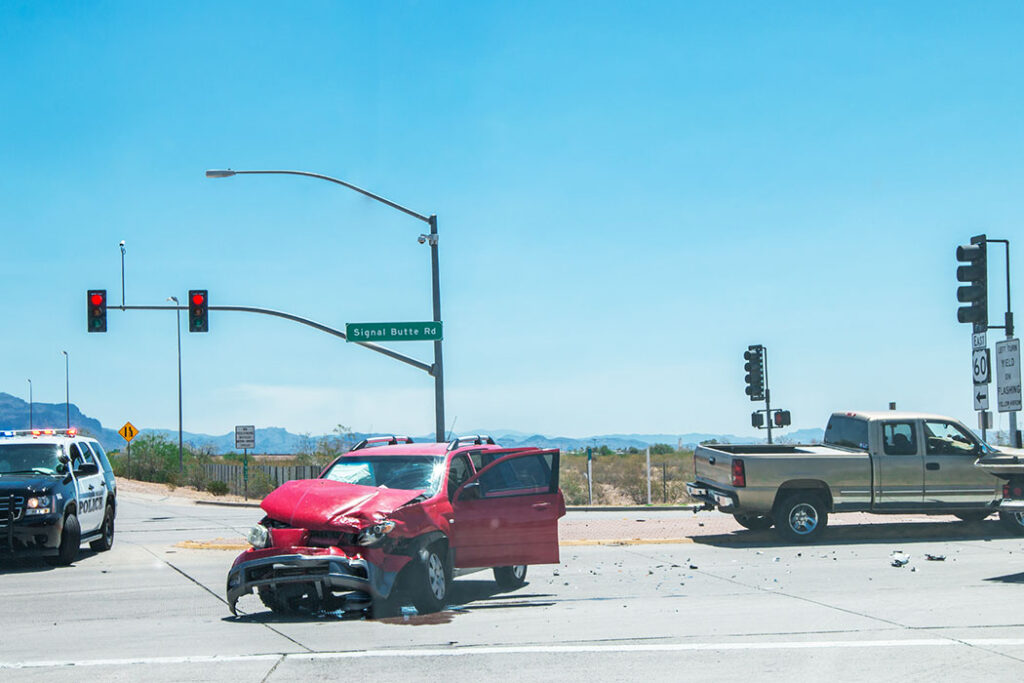
Arizona, known for its stunning landscapes and vibrant culture, attracts countless visitors year-round. However, like any other state, Arizona has its fair share of hazardous travel days when car accidents spike. This article explores the most dangerous travel days in Arizona, highlighting the associated dangers and providing essential tips for a safe journey.
Just know that In the event of an automobile accident in Arizona, you shouldn’t hesitate to contact our dedicated team of accident attorneys in Phoenix, Mesa, Chandler, Scottsdale, Tucson, Yuma, Bullhead City, and other cities throughout the state.
Most Dangerous Travel Days in Arizona
In general, more people are on the roads in the summer months. However, the period surrounding major holidays is when the travel days become particularly hazardous. This increased level of risk stems from the fact that people often take time off from work to celebrate the holidays, leading to a surge in road trips to visit family, explore Arizona’s breathtaking landscapes, and venture to other destinations.
And, it is not only Arizonans who are traversing the Grand Canyon state’s roads. There are plenty of people from other parts of the country that take time off in the summer to explore the southwest and beyond.
Holiday Weekends and Increased Traffic
During popular holiday weekends, such as Memorial Day, Labor Day, July 4th, Thanksgiving, Christmas, and New Year’s Eve/Day holidays, Arizona’s roadways experience a significant influx of travelers. This surge in traffic can result in congestion, longer travel times, and an increased risk of accidents. It is essential to plan ahead, allowing extra time for journeys, and being patient behind the wheel.
Furthermore, increased traffic often leads to driver fatigue and frustration, potentially impairing judgment and increasing the likelihood of road incidents. Adequate rest breaks, staying alert, and practicing distraction-free, defensive driving techniques are crucial during these periods.
Holiday weekends can also see an increase in drunk driving incidents. For example, during the Christmas and New Year period people may leave from work and imbibing copious amounts of alcohol. They may then drive drunk, high, or buzzed. An incredible 45 fatalities per day were related to alcohol-impaired driving during the 3-day Christmas period. This figure jumps to 54 per day during the New Year’s holiday.
Extreme Heat and Monsoon Season
Arizona’s scorching summers bring extreme heat, with temperatures regularly exceeding 100 degrees Fahrenheit. Traveling during these heat waves can be perilous, particularly for those unaccustomed to such intense conditions. Heat-related illnesses, such as heatstroke and dehydration, are common risks. It is crucial to stay hydrated, avoid strenuous activities during peak heat hours, and seek shade or air-conditioned areas whenever possible.
Related topic: How to Avoid Phoenix Heat Injuries
Furthermore, Arizona experiences a monsoon season from June to September, characterized by intense thunderstorms, flash floods, and dust storms. These weather phenomena can dramatically impact road conditions, causing reduced visibility and dangerous hydroplaning. Travelers should monitor weather forecasts, be prepared to change plans if necessary, and never attempt to cross flooded areas, as even shallow water can sweep away vehicles.
Winter Weather and Mountainous Terrain
While Arizona is renowned for its warm climate, winter brings a different set of challenges. Northern Arizona’s mountainous regions, including Flagstaff and the Grand Canyon, are prone to heavy snowfall and icy roads. Winter travel in these areas demands caution, adequate winter tires, and carrying essential supplies like blankets, food, and water in case of emergencies.
Related topic: Common Winter Accidents in Arizona & How to Avoid Them
Moreover, sudden snowstorms can create treacherous driving conditions, leading to accidents and road closures. It is crucial to stay updated on weather conditions, road closures, and advisories issued by local authorities. Additionally, drivers should reduce speed, maintain a safe distance, and avoid sudden maneuvers when navigating icy or snowy roads during these dangerous travel days in Arizona.
High Peak Travel Days for Inexperienced Drivers
The period of time between Memorial Day and Labor Day represents summer vacation for high school and college students. Many of these youngsters have licenses. These inexperienced drivers make the roads that much more dangerous for everyone. Some refer to the time period in which these young drivers hit the road as the “100 deadliest days” as teens are out and about, driving just about everywhere from May through August.
If you plan a trip during these months, be especially mindful of your positioning on the road, your speed and the vehicles around you.
Our Arizona Accident Attorneys Are on Your Side
There is a good chance you will end up driving on one of the more of these dangerous travel days in Arizona. After all, most people don’t stay at home on holidays and other important occasions. If you or a loved one does get hurt in a wreck while traveling in Arizona, do not hesitate to reach out to an auto accident lawyer at Lerner and Rowe Injury Attorneys for assistance.
To arrange a free initial consultation with an Arizona car accident attorney, please call 602-977-1900. Alternatively, you can reach us conveniently through our LiveChat feature on our website or by sending us a secure message regarding the details of your case.
The injury lawyers at Lerner and Rowe have over 240 combined years of experience advocating for injury victims across Arizona and the country. Our team has successfully recovered million dollar results on behalf of clients. Take the crucial first stride towards securing the compensation you rightly deserve by reaching out to us today.



